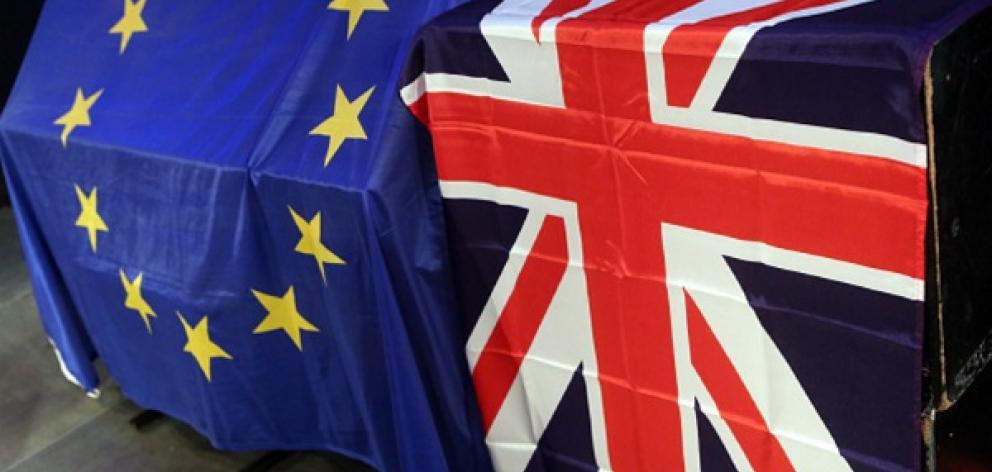
The SNP, the third-largest party in the House of Commons, was joined by the Liberal Democrats, Welsh party Plaid Cymru and the Green Party, but not the main opposition Labour Party, in tabling the motion on Tuesday.
The parties want the government to debate the motion before parliament rises for the Christmas recess.
"I am demanding that the government give time for this debate," SNP lawmaker Ian Blackford said on Twitter.
However, the government is only obliged to give time to motions tabled in the name of the Leader of the Opposition - Labour's Jeremy Corbyn.
A Downing Street spokeswoman declined to comment.
On Monday the Labour Party lodged a motion of no confidence in May herself for not quickly re-scheduling a vote by lawmakers on her Brexit plan that she delayed last week, but the government did not allow parliamentary time for a debate.
With just over 100 days until Britain is due to leave the European Union, May is yet to win the support of a deeply divided parliament for the deal she struck last month with Brussels to maintain close ties with the bloc.
She has said a delayed vote on her deal will take place in mid-January, prompting some lawmakers to accuse her of trying to force parliament into backing her by running down the clock as the March 29 exit day approaches.
UK to unveil post-Brexit immigration system
Britain's interior minister Sajid Javid is to publish plans for a post-Brexit immigration system that would bring net migration to the United Kingdom down to "sustainable levels", his department says.
Details of the new system, which will mark the end of free movement from other EU countries, will be set out in an immigration white paper on Wednesday.
The plans will include a new visa route for skilled workers and no cap for high-skilled professions such as doctors and engineers.
Concern about the long-term social and economic impact of immigration helped drive Britain's 2016 vote to leave the EU after large numbers of people, especially from poorer member states in eastern Europe, moved there to live and work.
"It will be a single, skills-based immigration system built around the talent and expertise people can bring, rather than where they come from - maximising the benefits of immigration and demonstrating the UK is open for business," Javid will say.
The white paper follows a report by the Migration Advisory Committee in September which recommended Britain should not give preferential treatment to EU workers in its post-Brexit immigration system but should prioritise the higher-skilled.
The new immigration and borders system will be implemented in a phased approach from 2021, the interior ministry said.












